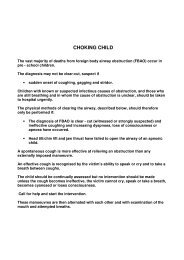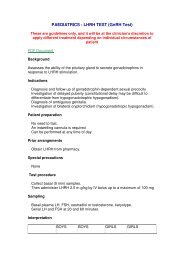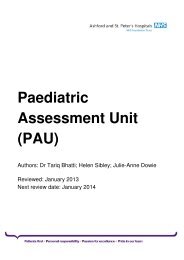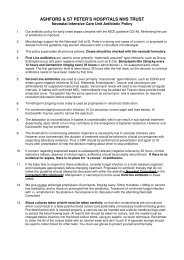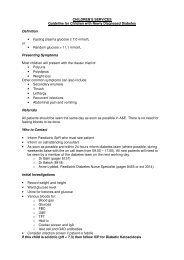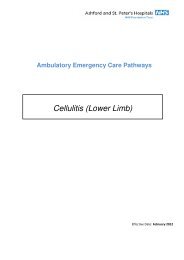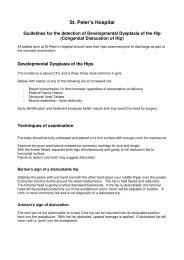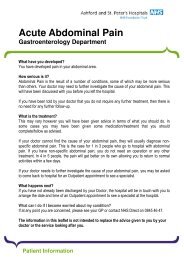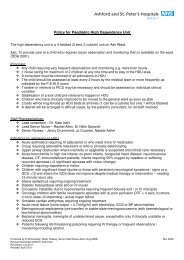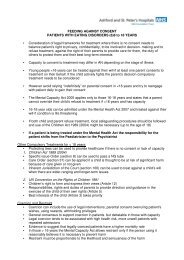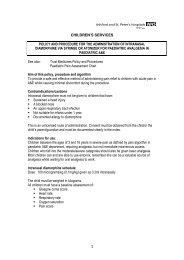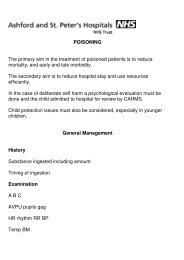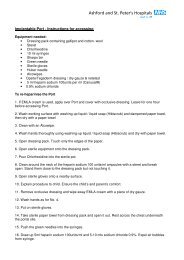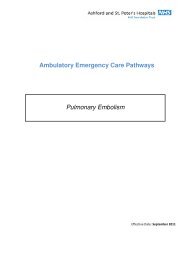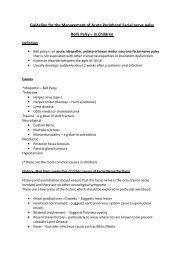AECP - AF.pdf - Ashford and St. Peter's Hospitals NHS Trust
AECP - AF.pdf - Ashford and St. Peter's Hospitals NHS Trust
AECP - AF.pdf - Ashford and St. Peter's Hospitals NHS Trust
You also want an ePaper? Increase the reach of your titles
YUMPU automatically turns print PDFs into web optimized ePapers that Google loves.
4. Patient Information<br />
Atrial fibrillation<br />
An irregular pulse could be a sign that you have an abnormal heart rhythm. Atrial Fibrillation<br />
(<strong>AF</strong>) is one of the most common forms of an abnormal heart rhythm <strong>and</strong> a major cause of<br />
stroke.<br />
That's why it's important to find out if you have it, because you can get effective treatment to reduce<br />
the risk of stroke.<br />
Normally, your heart’s natural pacemaker sends out regular electrical impulses. <strong>AF</strong> happens when<br />
those impulses fire off from different places in the atria (the top chambers of the heart) in a<br />
disorganised way.<br />
People with <strong>AF</strong> have an irregular <strong>and</strong> sometimes fast pulse. You can check to see if you might have<br />
<strong>AF</strong> simply by feeling your pulse.<br />
Around 800,000 people in the UK have <strong>AF</strong> - roughly one in 100 - <strong>and</strong> mostly aged 55 <strong>and</strong> over.<br />
What causes <strong>AF</strong>?<br />
Causes include high blood pressure, heart valve disease, thyrotoxicosis (overactive thyroid gl<strong>and</strong>) <strong>and</strong> excess<br />
alcohol consumption.<br />
It’s also associated with coronary heart disease. But in many patients no underlying cause can be found. Sometimes<br />
the <strong>AF</strong> can be resolved once the underlying condition has been dealt with.



